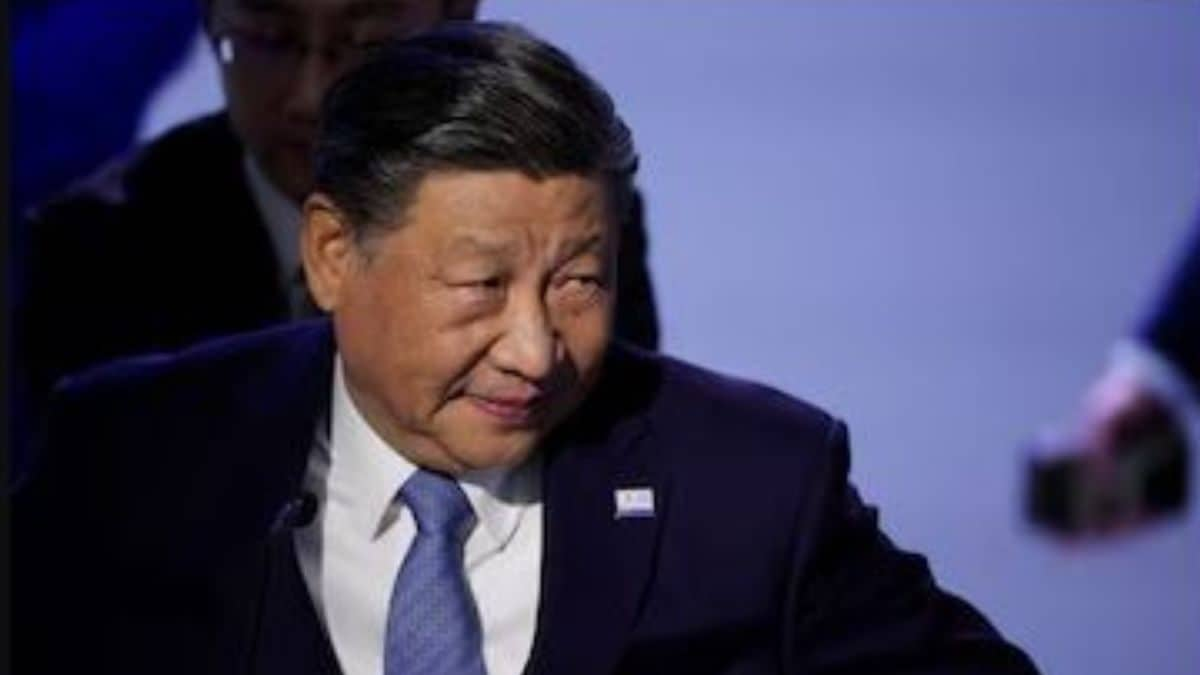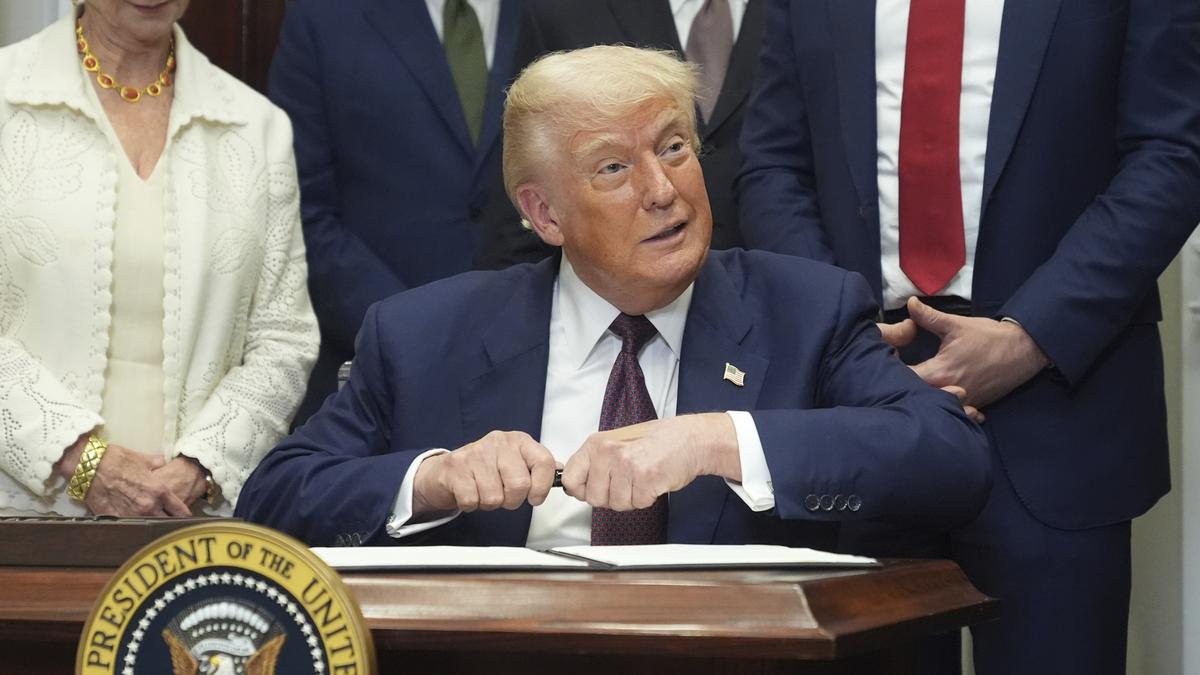Last Updated:
China, which has made some solid investments in Syria in order to strengthen its position in the Middle East, now seems battered. Beijing will have to reevaluate its support to Iran and Russia in the region

As far as the United States and European Union are concerned, they are likely to thwart China’s attempts to expand its diplomatic footprints in the Middle East and beyond. (Reuters File Photo)
China needs to recalibrate its strategy in Syria after the fall of the Bashar al-Assad government, which was heavily backed by Iran and Russia — on whom Beijing, perhaps, over-relied.
China, which has made some solid investments in Syria in order to strengthen its position in the Middle East, now seems battered. Beijing will have to reevaluate its support to Iran and Russia in the region.
What Have Been China-Syria’s Relations?
Back in September 2023, Chinese President Xi Jinping had rolled out a red carpet for Assad and his wife, Asma, who made a six-day visit to the country amid fanfare. The Assads were Xi Jinping’s guests at the opening ceremony of the 19th Asian Games in Hangzhou.
China was the only sixth visited country by Assad since the beginning of the Syrian civil war in 2011. Some say Xi Jinping’s red-carpet welcome to Assad and the signing of a “strategic partnership” agreement between the two countries was how “imperial” Beijing rewarded “loyal” Damascus for formally joining the Belt and Road Initiative (BRI) earlier in 2022.
Additionally, Beijing had also provided a diplomatic shield for Assad by blocking several resolutions in the United States Security Council (UNSC) in recent years.
China’s top envoy Wang Yi had pledged to bring peace to troubled global “hotspots,” and had sent diplomats to the Middle East in recent years. Beijing also called for end of the “collective punishment” of Palestinian civilians by Israel.
According to a report by the Cyprus-headquartered consultancy firm Centre for Operational Research and Analysis (COAR), following the Syrian government’s victory against the rebel forces in Aleppo in 2016, China’s financial assistance to Damascus jumped 100 times from $500,000 to $54 million in just one year. Additionally, Beijing also made long-term investments in Syrian oil and gas, totalling $3 billion.
What Assad’s Fall Means For China?
The most obvious reason to assume that Syria was important to Beijing was China’s use of its United Nations Security Council (UNSC) veto at key points in Syria’s civil war to support the Assad regime. China vetoed UNSC resolutions relating to the Syrian civil war eight times.
Syria’s civil war also complicated Beijing’s response to the Arab Spring. Thousands of Uyghurs, a Turkic-speaking Muslim minority from western China—mostly from Xinjiang—travelled to Syria to fight alongside al-Qaeda against the Syrian government.
One Uyghur combatant quoted in an AP news article in 2017 reportedly said, “We didn’t care how the fighting went or who Assad was. We just wanted to learn how to use the weapons and then go back to China.” A defeated Syrian government, therefore, had serious potential repercussions for Beijing.
In fact, China had not made any major contracts or investments in Syria since 2010, according to Atlantic Council. The peak of China-Syria trade over the past 15 years was in 2011, when it was valued at about $2 billion. In 2022, it was a mere $541 million. China’s companies have no shortage of attractive markets in the Middle East, and Syria hasn’t been one of them for a long time.
What Is China Worried About?
Experts and columnists in Chinese mainstream media have been concerned about China’s growing interests in the Middle East as an economic guide and investor, should China meddle in region’s politics and how can United States be prevented from disrupting Beijing’s plan?
Social media posts have also criticised China’s seemingly exaggerated diplomatic achievements in the region, including the Beijing-brokered truce between major Palestinian rival factions Fatah and Hamas earlier this year, and the Saudi Arabia-Iran surprise “diplomatic détente” in March 2023.
“Beijing wants to expand its influence in the Middle East, and Syria was an important foothold for it to do that,” US-based current affairs commentator Heng He told Radio Free Asia (RFA) Mandarin in a recent interview. “This is at the very least a huge setback for the Chinese Communist Party’s desire to boost its influence … by winning allies or supporting certain forces in the Middle East,” he said.
China’s absence from a summit in Jordan could also suggest that the “new masters” in Syria do not believe that China can play neutral role in the transition. Turkey and Saudi Arabia, who were the key participants in the summit, might now see China as irrelevant.
As far as the United States and European Union are concerned, they are likely to thwart China’s attempts to expand its diplomatic footprints in the Middle East and beyond. Beijing had helped the Iranians overcome sanctions and political pressure imposed by the US in recent years, as reported by the South China Morning Post (SCMP).
This also means that China has indirectly been part of Iran’s ‘Axis of Resistance’, which means being an adversary to Israel and the United States and its allies, the SCMP reported.
In all this chaos, Turkey has emerged as an important stakeholder in the Middle Eastern geopolitics. Thus, increasing diplomatic action between Washington and Ankara over the region’s future.
“With the US, Turkey and Israel appearing to have the upper hand in the current Middle Eastern dynamic, it is hard to imagine how China can find some room for diplomatic manoeuvre,” SCMP said.





